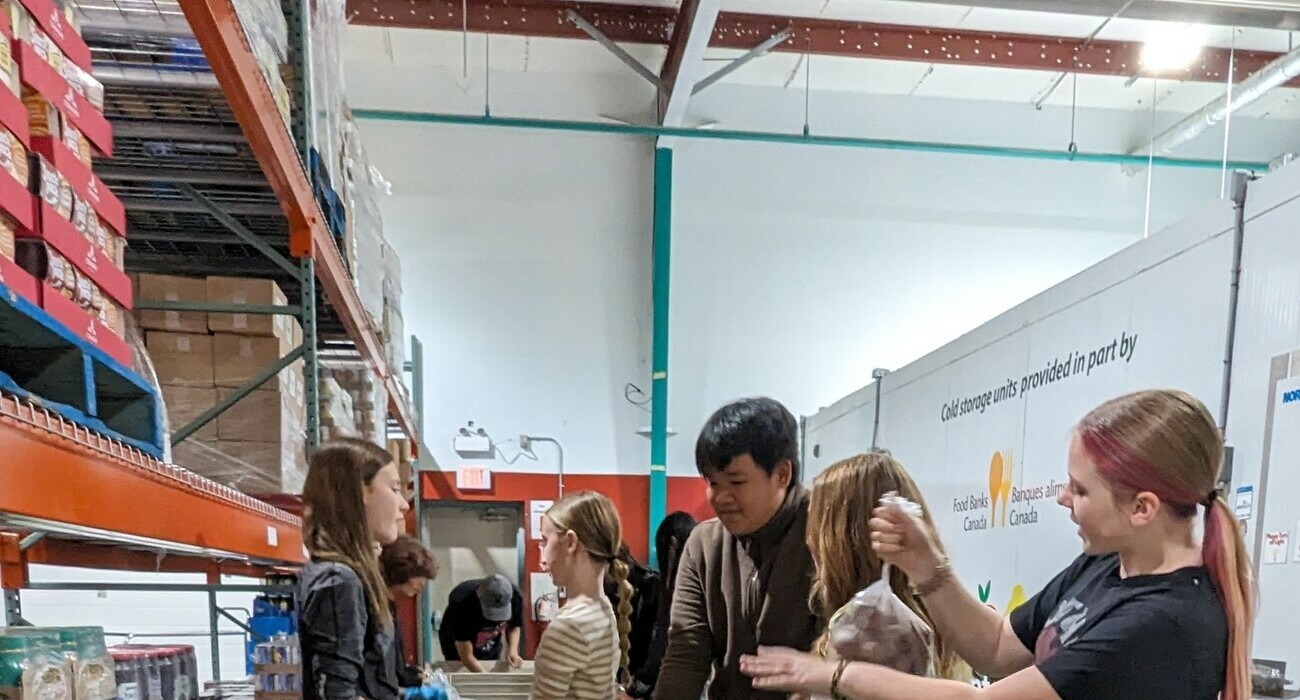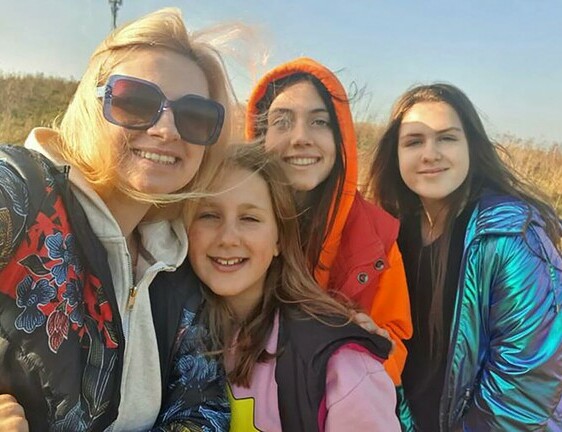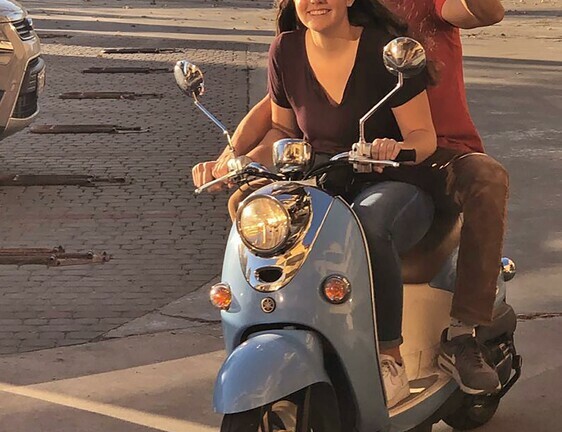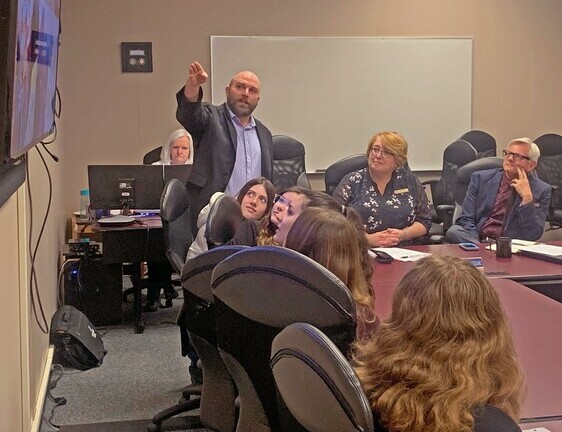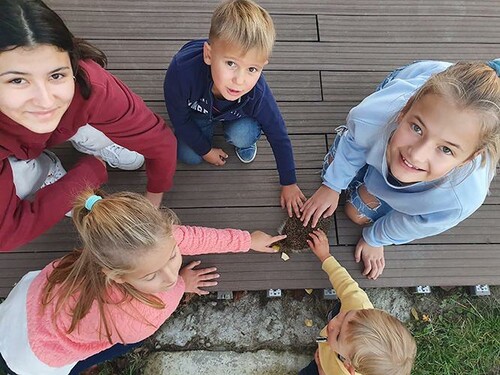
COALDALE – Jasmine DeBoer admits her bucket list of must-visit travel destinations didn’t include Ukraine prior to her recent trip there. In hindsight, however, the Grade 9 student couldn’t speak highly enough about the experience or Palliser Regional Schools’ international student exchange program for making it possible.
DeBoer was among five Kate Andrews High School students who benefitted from Palliser’s desire to expand reciprocal exchange opportunities for those hosting international students and chaperones in their own homes.
Before the contingent took flight for Easter Europe, she says her knowledge of Ukraine was basically limited to the intricately-decorated eggs and tasty vareniki, or ‘perogies,’ it has shared with the world.
“Now I got to know a whole new culture, I learned some of the language and I made new friends with classmates here at my school that I normally wouldn’t have made friends with,” says DeBoer. “I think you learn more in those two weeks than you would have learned in all of school here.”
Associate Superintendent Tom Hamer says the learning opportunities that travel offer students is the impetus behind the international student exchange program.
“We want southern Alberta students to experience global education and we want them to understand global issues first hand. By giving students the opportunity to travel – not as a tourist – it really opens their eyes to cultural similarities, cultural differences and issues that exist in the world today,” he says, adding such experiences should better prepare them to be active citizens in the future.
When R.I. Baker Middle School was looking for host families for students visiting from Ukraine a year ago, Elise Perry says the chance for a return visit was a deciding factor in her case. Not only could she explore family roots, it was a departure from the usual vacation destinations.
“My travelling before was kind of just like travelling to Mexico,” says Perry. “Going to Ukraine was really cool because it was totally learning about the culture and it wasn’t just about laying on the beach.”
While she includes a trip to the mountains with her host family as a highlight of the trip, Perry says a cooking class was the most eye-opening experience as she learned perogy fillings could go beyond the usual potato and cheese, to ingredients like cherries and buckwheat.
Rylie Slobodan’s family was big on the opportunity for her to learn more about Ukraine, as her great, great grandparents hailed from the L’viv area the Palliser contingent spent most of their time in. She was impressed with all the castles they visited.
“They have so many old buildings and so much history. I didn’t know that, because you can’t really find an old building here,” says Slobodan.
It’s been several years since Palliser began hosting international students and allowing local students to experience a new culture without leaving home. It was just three years ago a Palliser student visited China as part of a provincial contingent, and the school division has followed up with exchange programs with Chile and Japan since then.
Hamer says staying with a host family in a foreign country offers Palliser students “authentic experiences” unavailable to those travelling as a tourist.
“Then they have a better appreciation for what it is to be a young learner, a young citizen in whatever country they are going to,” he says, adding they will hopefully form bonds that last a lifetime.
Isabella Jackson would definitely recommend the international exchange program after their trip to Ukraine.
“If you went to Ukraine on a vacation you wouldn’t have the same experience as living with a family there. You get a better chance to experience their lifestyle,” says Jackson, who noticed a definite difference between the downtown vibe in the city’s they visited and back home in Coaldale.
Schoolmate Ella Kasko, who was impressed by the architecture in Ukraine, says she too would give the experience a ‘thumbs-up’ for anyone looking for a recommendation.
“I would probably say, ‘go for it’ because it’s a really good experience and it’s a fun time. You get to see the world,” says Kasko.
Palliser Regional Schools is currently working with agencies and the provincial government to determine other potential ‘sister schools’ around the world. While international trips abroad have typically been two weeks in duration to date, Hamer says there is the potential for longer stays.
All international trips, he notes, are conditional on safe environments being available for our students. Palliser follows the lead of Government of Canada travel advisories and cancellations may be deemed necessary if a risk is identified in a particular country.
Conversations are also being had with Palliser principals to identify students who might be interested. Palliser participation in the international student exchange program is dependent on a buy-in from school leaders, says Hamer.
“They have to believe in the benefits of global experiences so they can model that with their community and talk about it with their community, because they’re the trusted individuals in the community,” he says. “The school has to believe in why they are doing this. If not, it’s not going to be sustainable.”

